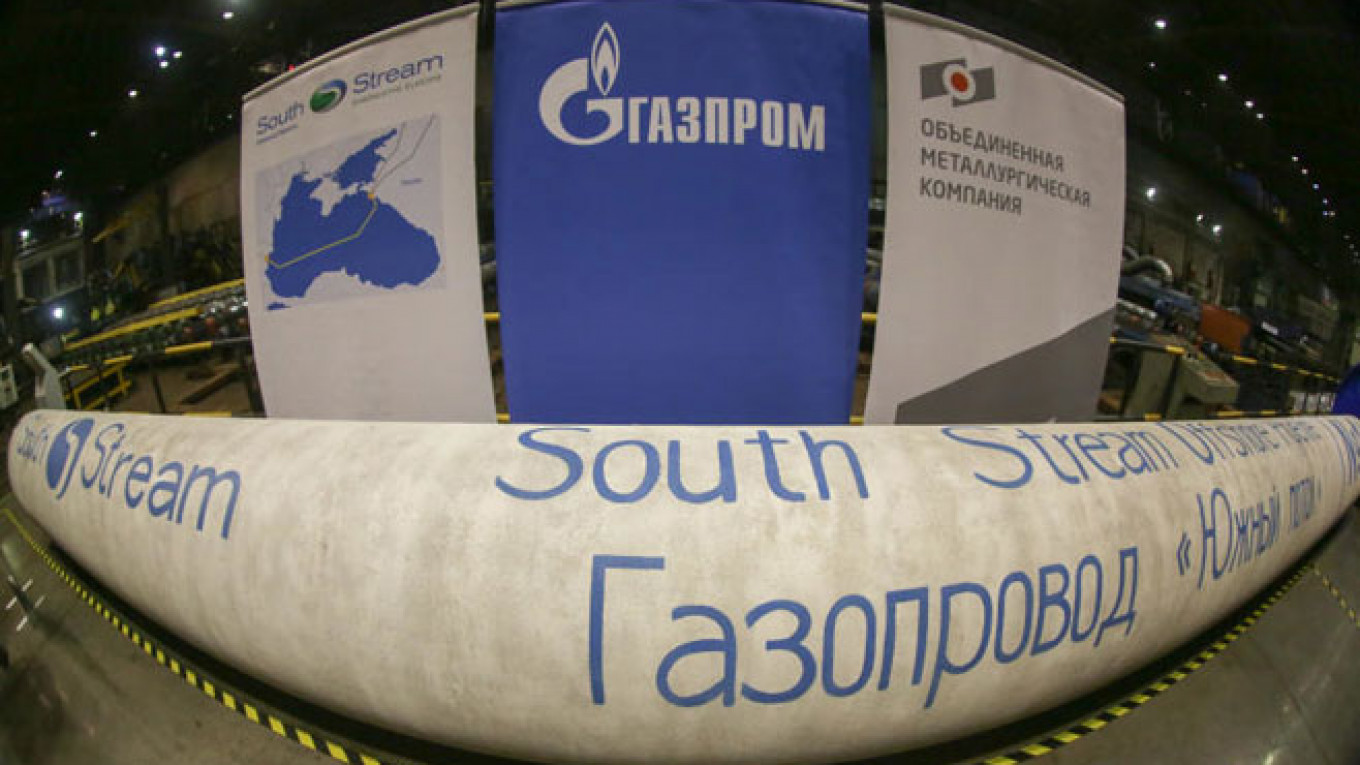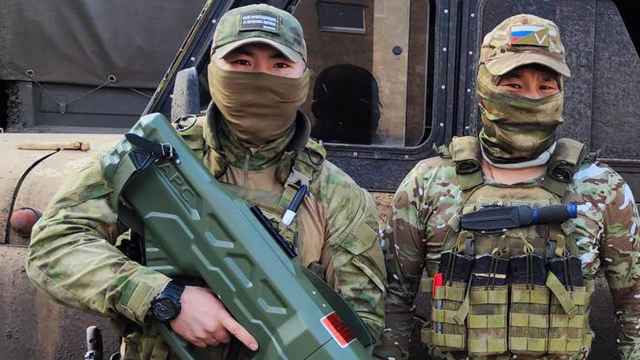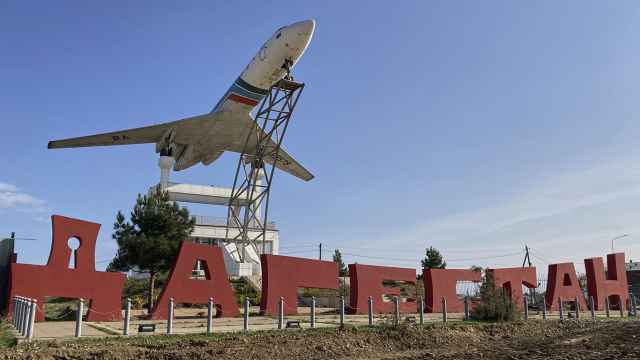More than 20 years after the end of the Cold War, tensions between Russia and the West have heightened significantly in the context of the ongoing crisis in Ukraine. The post-communist and post-conflict transitional Western Balkan region is affected by what has been portrayed as a new Cold War.
After Russia's unconvincing involvement in the Yugoslav wars and its limited determination and capacity to support Serbia, Russia's policy toward the region has gradually become more pragmatic but also hostile vis-a-vis the West's interests. Most recently, Russia made it clear that Euro-Atlantic integration is not the region's only option, as revealed by the discussions of the Peace and Implementation Council over the future of Bosnia and Herzegovina.
This comes a month after Russia was the only state in the United Nations Security Council to reject prolonging the mandate of the EU peacekeeping force in Bosnia for another year. Moreover, Russia has been particularly active in the Serb region of Republika Srpska in Bosnia and has supported leaders advocating for the independence of the province.
The relationship with its historic and cultural ally, Serbia, however, remains for Russia the most important source of influence in the Western Balkans. Russia has not only constantly been a defender of Serbia's interests as revealed by the issue of independence for Kosovo, but it has intensified its economic ties with Belgrade as well as new military forms of cooperation. Serbia hosted the first ever Serb-Russian military exercise in November.
Serbia is therefore a unique EU candidate state — with an army that has been modernized and financed by the U.S., and that holds military drills with Russia. When it comes to economic ties with Russia, besides a big investment in rebuilding Serbia's railway system, the energy sector is of major significance, as Gazprom owns more than 50 percent of oil monopoly NIS and a majority stake in Serbia's natural gas supplier. The recently suspended South Stream gas pipeline project was of major importance for the entire region of Southeastern Europe.
Another example of Russian economic influence in the region is Montenegro, where Russian businessmen own a third of all enterprises in the country. However, unlike Serbia, Montenegro has been reaffirming its commitment to EU accession and has even openly supported the EU's sanctions on Russia.
Russia has also been increasing its investments in Macedonia and included the country in the South Stream project. The only two EU members in the Western Balkans — Slovenia and Croatia — are also perceived by Russia as potential partners, especially in the context of the EU's economic crisis.
On the other hand, the EU has been the driving force for reforms and stability for all countries in the region. While Serbia, Montenegro and Macedonia have candidate status, Albania, Bosnia and Kosovo are only potential candidate countries.
However, regardless of their individual progress, the EU announced earlier this year that while the negotiation processes would continue, there would be no further enlargement for the next five years. This announcement has come after an already slow-paced "stabilization and association process" and in the context of two key internal problems for the EU: enlargement fatigue and the impact and continuation of the economic crisis within Europe.
In other words, EU enlargement and the EU's strategy toward the Western Balkans have not only been criticized for their shortcomings, but they have now entered into a period of uncertainty. This uncertainty derives directly from the limited effectiveness of the EU's soft power and incapacity to fulfill its promises and its responsibilities toward countries aspiring to join the union. The situation in Ukraine itself has been characterized as a consequence of the EU's halfhearted commitment to its eastern neighbors. Big promises, scant results.
Russia's strategy in the Balkans has been to take advantage of this uncertainty and replace the EU's "carrots," which are failing to materialize, with more definite and immediate rewards. However, as shown by the cancellation of South Stream, as well as by its own severe economic problems, Russia cannot always live up to its realpolitik commitments and may not be able to maintain its influence over the rather pragmatic Balkans or even its Slavic ally, Serbia.
In this context, Kosovo remains a telling example for analyzing both Russia's and the EU's involvement in the Western Balkans. While Serbia's accession to the EU is conditioned by the normalization of its relationship with Kosovo and the eventual recognition of its independence, there are still four EU member states that have not recognized Kosovo either. EU states like Romania may be highly pro-Western and may not have good relationships with Russia, but have the same position on the Kosovo issue. Then again, Russia itself used Kosovo as a precedent for justifying its annexation of Crimea.
The EU does not have a unified voice, its commitment to future enlargement is uncertain and its economic incentives are decreasing. Russia may become much more preoccupied with the situation in the ex-Soviet space as well as with its own growing domestic challenges.
In any case, the Western Balkan region remains dependent on the support and direction given by external actors, be that the EU or Russia. As the undetermined future of Kosovo and Serbia suggests, the Western Balkans may become another battleground between Russia and the EU. For the people of the Western Balkans, however, this new battle will only perpetuate the existing socio-economic and political uncertainty and exacerbate state weakness.
Marius Calu is a researcher at the School of Politics and International Relations at Queen Mary University of London.
A Message from The Moscow Times:
Dear readers,
We are facing unprecedented challenges. Russia's Prosecutor General's Office has designated The Moscow Times as an "undesirable" organization, criminalizing our work and putting our staff at risk of prosecution. This follows our earlier unjust labeling as a "foreign agent."
These actions are direct attempts to silence independent journalism in Russia. The authorities claim our work "discredits the decisions of the Russian leadership." We see things differently: we strive to provide accurate, unbiased reporting on Russia.
We, the journalists of The Moscow Times, refuse to be silenced. But to continue our work, we need your help.
Your support, no matter how small, makes a world of difference. If you can, please support us monthly starting from just $2. It's quick to set up, and every contribution makes a significant impact.
By supporting The Moscow Times, you're defending open, independent journalism in the face of repression. Thank you for standing with us.
Remind me later.






